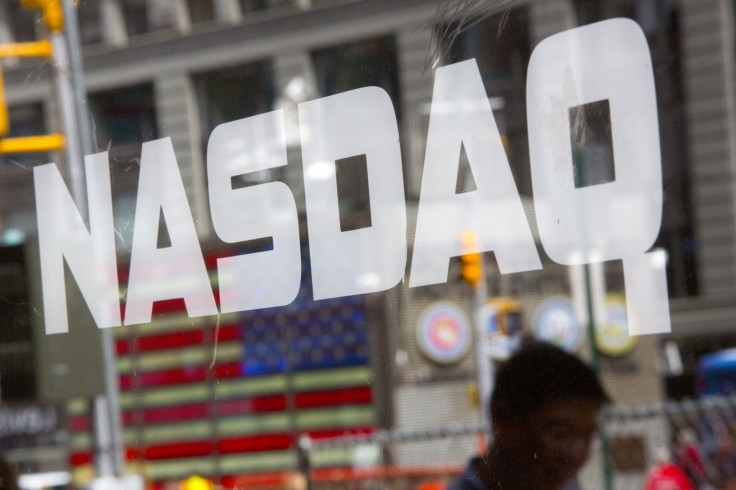NASDAQ Composite Falls Below 4,000 With High Sell-Offs In Biotechnology And Momentum Stocks, The Lowest For A Week Since 2012

U.S. stocks plummeted amid a volatile exchange Friday, causing the NASDAQ Composite (INDEXNASDAQ:.IXIC) to close 1.3 percent lower, below the 4000 mark, making it the lowest ending for a week since 2012.
The NASDAQ Composite dropped 57 points to 3,998 and has lost 3.1 percent this week, due to weak biotechnology and technology stocks. The Dow Jones Industrial Average (INDEXDJX:.DJI) fell 133 points, or 0.8%, to 16,037, led by JPMorgan Chase & Co. (NYSE:JPM) which dropped 3.6 percent, after reporting first-quarter earnings, which missed estimates. The S&P 500 (INDEXSP:.INX) index was down 0.95 percent, to 1,815, and was on its way to close at a two-month low.
“We haven’t had this in so long that people kind of forget,” John Canally, an economic strategist at LPL Financial Corp., said according to Bloomberg, and added: “It’s painful while you’re in it, but when you’re coming out of it, it’s a buying opportunity. If things were different, if credit spreads were widening out, if the Fed was hiking rates, if there were signs of high inflation, it’d be a different scenario.”
The NASDAQ Biotechnology Index (INDEXNASDAQ:NBI) dropped 2.8 percent at close, and slid 20 percent since late February, while the Dow Jones Internet Composite Index (INDEXDJX:DJINET) fell 1.99 percent. Facebook Inc. (NASDAQ:FB) closed 1.06 percent lower while Netflix, Inc. (NASDAQ:NFLX) fell 2.4 percent, and Amazon.com was down 1.7 percent (NASDAQ:AMZN). LinkedIn Corp. (NYSE:LNKD) cut its earnings by 2.48 percent at close.
"Today's decline is what we've been seeing all week. The weakness in the biotech and momentum names is getting investors worried about where the market is headed in the near term, eventually triggering a sell-off in everything," Robert Pavlik, chief market strategist at Banyan Partners, said, according to Reuters.
The week started with sell-offs in technology stocks since April 3. Though the stocks saw a rebound quickly because the Federal Reserve reduced the concern about the timing of interest-rate increases, weaker earnings throughout the week dragged the stocks down again.
"People are just watching right now," John Stoltzfus, chief market strategist at Oppenheimer Asset Management, said, according to the Wall Street Journal, adding: "They are wondering how much more this pullback can go before they start committing new money. At this point, the market is in a 'show-me' mode."
© Copyright IBTimes 2024. All rights reserved.





















